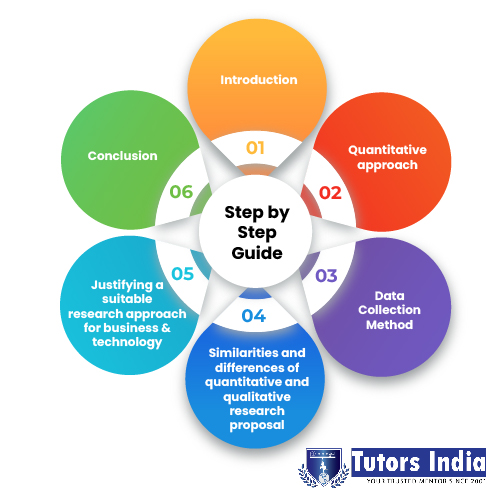Conducting a Quantitative UK Dissertation Research Methodology – Step By Step Guide
Introduction
Amassing information, documenting facts and attempting to find information in a rather unsystematic manner could be wrongfully deemed as research. On the contrary, research refers to an investigation that is appropriately structured and revolves around a phenomenon. The investigation here would be carried out with a particular reason which could be for verification of facts, and reaching a rational conclusion. While the sources for knowledge could be many, researchers in the social science domain depend on procedures organized to confirm social facts and this type of an organized structure is usually deemed as research methods (Mitra, 2021). Discussions revolving around the choice of research method have been a concern that keeps emerging, nonetheless, it is not restricted to the social science domain exclusively. On the contrary, it can be witnessed across every academic domain. Furthermore, this type of reemergence has been anticipated as a result of the importance associated with the selection of a research methodology.
When pursuing a master’s course in UK universities, students are frequently required to write their master’s dissertations and when there are dissertations, having knowledge about research methodologies are imminent. Research methodologies are mainly of three types and these include; qualitative, quantitative and mixed methods (Pawar, 2021). Taking it one step at a time, this piece provides information on developing your UK master’s dissertation using a quantitative research methodology.
Understanding and Tackling a Quantitative Research Method
Quantitative research is deemed as an organized inquiry to examine a phenomenon by collecting information in a numerical format and executing a statistical, mathematical or computational analysis (Apuke, 2017). Quantitative research methods are founded on the positivist paradigm that extends support to approaches deeply ingrained in statistical breakdown, while including several strategies like; structured protocols, mathematical exposition, hypotheses testing, blinding, questionnaires, quasi-experimental and experimental design, and randomization which have a restricted kind of preset responses. Objectives within quantitative research need to be such that it can be measured or at least split from variables and hypotheses. Variables here refer to notions that would fluctuate and are known to assume various values. However, hypotheses on the other hand are deemed as propositions of assumptions yet warranting testing of the link between variables. According to Igwenagu (2016), ex-post facto, experimental, survey and case study research are some of the commonly used quantitative research approaches while developing a UK dissertation.

Figure 1. Key Points in Writing a Quantitative Research Methodology
Source; Tutors India, 2022
Techniques for Data Collection
Data collection in a quantitative research would hinge on probability sampling and the use of structured tools to gather data, which is apt for diverse experience within categories of response that are predefined. Outcomes obtained through quantitative methods of data collection produce results which render it easy to generalize, summarize and comparison (Eyisi, 2016). Data for quantitative research is carried out using tools like survey questionnaires.
Key Difference between Qualitative and Quantitative Approaches
In qualitative research, understanding and insights to a problem setting is provided and it usually exploratory and unstructured in nature wherein an investigation of a complex phenomenon is carried out. Qualitative methods are used when it is clear that the phenomenon cannot be elucidated with quantitative methods (Cropley, 2021). While quantitative research refers to a research type that relies on a natural science technique which produces numerical data and hard facts. The key purpose of a quantitative research is to establish a cause and effect relation among two variables using statistical, computational and mathematical techniques (Synopsis, 2017).
Justification for Using Quantitative Method
A research which is quantitative would be structured around a scientific technique. After getting an understanding about the phenomenon under investigation, the researcher delves into formulating hypotheses on which deductive reasoning is applied by predicting the manner in which the data needs to appear in case the hypotheses are true, following data collection and its analysis to reject or confirm the hypotheses. Furthermore, the findings derived from quantitative research methods are such that it can be generalized over a larger population This lends credibility to the research and is justification enough to use quantitative methods in a dissertation.
Conclusion
Considering the rate at which researches are being executed within academic realms and also in business sectors, choosing a particular method of research would depend largely on several factors. However, it has been stated by that the type of research problems hold the key in the choice of a research methodology. According to the tenets of quantitative research, there is a possibility that researchers are drawn to select a particular research approach as one which is most apt. Nevertheless, what is important is that any and every method of research is known to have its own set of strengths and weaknesses, and compatibility along with other strategies.
References
- Apuke, O. D. (2017). Quantitative Research Methods : A Synopsis Approach. Kuwait Chapter of Arabian Journal of Business and Management Review, 6(11), 40–47. https://doi.org/10.12816/0040336
- Cropley, A. (2021). Introduction to qualitative research methods: A practice-oriented introduction for students of psychology and education. Open Access, 3rd Update.
- Eyisi, D. (2016). The usefulness of qualitative and quantitative approaches and methods in researching problem-solving ability in science education curriculum. Journal of Education and Practice, 7(15), 91–100. https://eric.ed.gov/?id=EJ1103224
- Igwenagu, C. (2016). Fundamentals of research methodology and data collection [University of Nigeria, Nsukka]. http://staging-nodebb-uploads.s3.amazonaws.com/FundamentalsofResearchMethodologyandDataCollection-%25philu%25-6fae26dd-631d-4e66-9864-663ec2b30204.pdf
- Mitra, A. (2021). TECHNO INDIA UNIVERSITY , WEST BENGAL Study Materials on ‘ Research Methodology ’ along with Sample Questions and Answers. October. https://www.researchgate.net/publication/355796104_Basics_of_Research_Methodology_RMpdf
- Pawar, N. (2021). 6 . Type of Research and Type Research Design. June. https://www.researchgate.net/publication/352055750_6_Type_of_Research_and_Type_Research_Design
- Synopsis, M. A. (2017). Arabian Journal of Business and Management Review ( Kuwait Chapter ). 6(10), 40–47. https://doi.org/10.12816/0040336

 Previous Post
Previous Post Next Post
Next Post